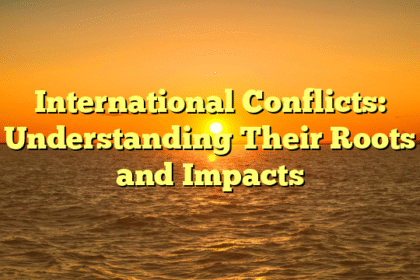Fake News Reports
In an age the place data is at our fingertips, the speedy dissemination of faux information experiences has turn into a urgent concern. From social media feeds to mainstream information retailers, the viral unfold of false data can have important societal penalties. This text goals to delve into the origins of faux information, its influence on public notion, and the way people can safeguard themselves from falling into the lure of misinformation.
The Rise of Faux Information Experiences

Understanding Faux Information
Faux information experiences are fabricated tales which might be designed to mislead or manipulate the general public. Not like conventional journalism, which adheres to a code of ethics and fact-checking, faux information usually prioritizes sensationalism over accuracy. This content material may be solely fictional or skewed, taking info out of context for dramatic impact.
The Position of Social Media
Social media platforms have turn into fertile floor for faux information experiences. With billions of customers sharing content material, it’s simpler than ever for false data to unfold like wildfire. Algorithms can amplify deceptive tales, pushed by consumer engagement fairly than truthfulness. This creates an echo chamber the place misinformation thrives.
The Psychology Behind Viral Hoaxes
Understanding why individuals have interaction with faux information experiences is essential. Cognitive biases, comparable to affirmation bias, lead people to simply accept data that aligns with their preconceived notions. The emotional enchantment of sensational headlines additionally performs a significant function in driving clicks and shares.
The Penalties of Faux Information Experiences
Influence on Society
The influence of faux information experiences extends past private beliefs—it may affect habits, societal norms, and even public coverage. For example, throughout elections, the proliferation of faux information has the potential to sway voter opinions, undermining the democratic course of. Equally, throughout well being crises, misinformation can result in harmful practices, as seen with COVID-19 hoaxes.
Erosion of Belief
Some of the alarming penalties of faux information experiences is the erosion of belief in reputable information sources. As audiences turn into extra skeptical, they might query the credibility of respected retailers, resulting in a fragmented media panorama. The decline in public belief poses a big risk to knowledgeable citizenship.
Unmasking the Reality: Find out how to Establish Faux Information Experiences
Recognizing Pink Flags
With the ability to determine faux information experiences is crucial for navigating in the present day’s data age. Listed here are some vital purple flags to be careful for:
-
-
Sensational Headlines: If a headline appears overly dramatic or outrageous, confirm it earlier than sharing.
-
-
-
Supply Verification: Test the credibility of the supply. Established information organizations usually have requirements for moral journalism.
-
-
-
Date of Publication: Outdated information can resurface and be misrepresented as present occasions. At all times test the publication date.
-
-
-
Lack of Proof: Dependable articles are normally backed by stable proof or skilled opinions. If an article makes daring claims with out substantiation, method it with skepticism.
-
-
- Combined Content material: Analyze the language used. Experiences with overly emotional or inflammatory language is probably not goal, indicating a possible faux information report.
Reality-Checking Sources
When doubtful, make the most of fact-checking web sites specializing in validating claims. Some respected sources embrace:
-
- Snopes: Identified for debunking myths and concrete legends.
-
- FactCheck.org: Focuses on political claims and misinformation.
-
- PolitiFact: Devoted to fact-checking political statements and information tales.
The Duty of Media Customers
Interact Thoughtfully
As customers of reports, it’s very important to interact critically with data. Take a second to think about the implications of what you learn. By being vigilant, you’ll be able to cut back the potential for faux information experiences to affect public opinion.
Share Responsibly
Earlier than sharing any information, particularly if it’s sensational or alarming, test the info. If the knowledge proves to be false, it’s possible you’ll inadvertently contribute to the misinformation ecosystem.
Encourage Trustworthy Discourse
Making a dialogue concerning the significance of media literacy might help domesticate a extra knowledgeable society. Encourage discussions about dependable information sources and the traits of faux information experiences in your neighborhood.
What Journalists and Media Retailers Can Do
Upholding Requirements
Journalists should adhere to moral requirements to keep up credibility. Investigative reporting, fact-checking, and transparency about sources are important practices that defend towards the unfold of faux information experiences.
Selling Media Literacy
Media retailers can play a big function in educating the general public concerning the risks of misinformation. Workshops, articles, and social media campaigns might help domesticate media literacy amongst their audiences.
Collaboration with Tech Platforms
Media organizations should collaborate with social media platforms to fight faux information. Optical recognition and content material moderation applied sciences might help detect and cut back the unfold of faux information experiences.
Conclusion: Taking Motion Towards Faux Information Experiences
The prevalence of faux information experiences is a problem that everybody should confront. By understanding what faux information is, recognizing its influence, and understanding how one can determine it, people can actively mitigate the results of misinformation. It’s a collective duty—dependable journalism, savvy media consumption, and open discourse are pivotal within the combat towards faux information.
Actionable Insights:
-
- At all times confirm the credibility of sources earlier than sharing.
-
- Educate your self and others about media literacy.
-
- Help initiatives and conversations that promote factual reporting.
-
- Eat information from quite a lot of respected retailers to realize a well-rounded perspective.
On this digital age, consciousness and demanding engagement are our greatest instruments towards faux information experiences, guaranteeing that reality prevails within the overwhelming noise of misinformation.







